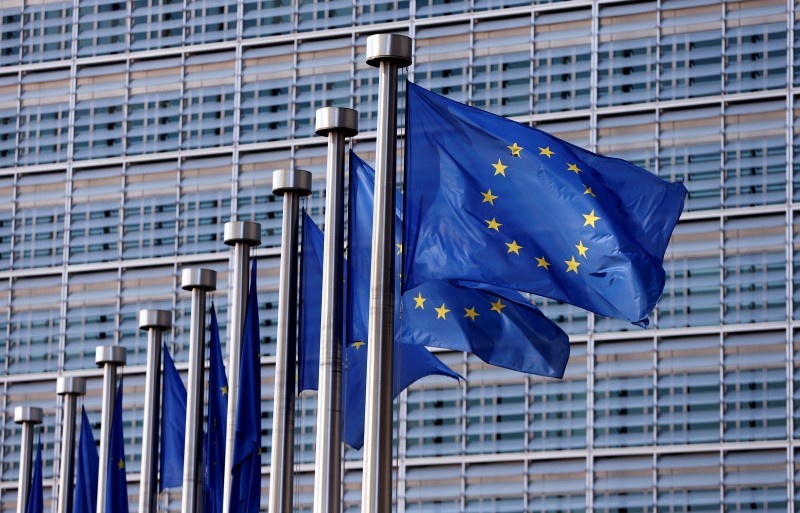By Julia Fioretti
BRUSSELS (Reuters) - The heads of some of the biggest Hollywood studios, commercial broadcasters and European football leagues have urged the European Union to reconsider a planned copyright overhaul they fear will lead to lower investment in films and TV shows.
In a letter to the presidents of the European Commission, European Council and European Parliament, they warn that the EU's plans to help make more films and TV shows available online across borders will have "severe negative impacts on our industry and incentives to invest, which would stunt economic growth and innovation for years to come."
The Commission, the EU executive, wants to make it easier for broadcasters like the BBC and Canal Plus (PA:VIV) to show their content online across the 28-nation bloc by allowing them to clear the rights solely in their home country.
But many broadcasters, film producers as well as the sports industry are fiercely opposed, arguing that it will dilute the value of exclusive rights and undermine the industry's financing model.
Films and TV shows are often financed by selling exclusive distribution rights on a country-by-country basis to secure investment.
The CEOs of companies including Fox Network Groups (O:FOXA), NBCUniversal (O:CMCSA), broadcasters Sky (L:SKYB) and Mediaset (MI:MS) and the British, French, Italian, German and Spanish football leagues said the planned reform "represents a significant, unjustified and detrimental incursion into rights owners’ and broadcasters’ freedom to exploit their intellectual property rights."
"The negative effects of such an intervention would lead directly to lower levels of investment in European content production, promotion and distribution," says the letter, dated Aug. 26 and seen by Reuters.
At issue is the so-called "country of origin principle", which allows satellite broadcasters to acquire the rights for content in their home country rather than in every country where the programme is received by satellite.
Under the Commission's proposal, expected to be unveiled in late September, broadcasters could choose to make their catch-up TV and live streaming services available online across the EU after clearing the rights in their home country.
The draft regulation, seen by Reuters, does not oblige broadcasters to make their content available across borders nor does it prevent rights holders from licensing content on a country-by-country basis.
The Commission expects premium content like films and sports to continue being blocked online for foreign viewers and has said it does not want to undermine the industry's financing model.
But rights holders and commercial broadcasters fear that a separate EU antitrust case involving Hollywood studios' movie-licensing deals with British pay-TV group Sky UK could limit their ability to ask for content to be blocked for foreign viewers.

The proposal will need to be agreed by the European Parliament and EU governments before becoming law, meaning it will likely undergo changes.